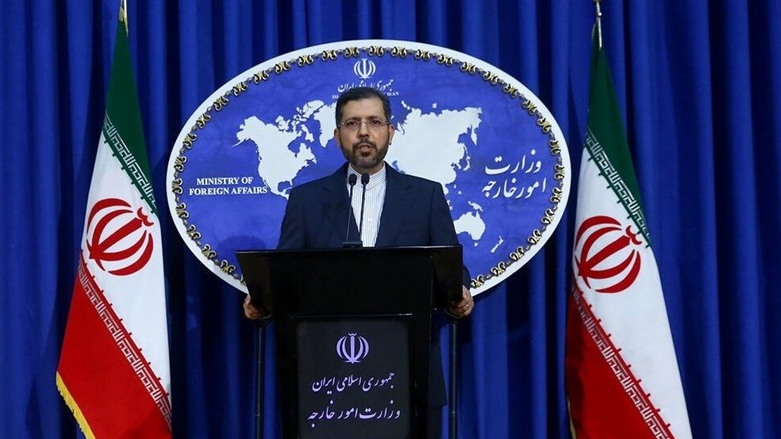Iran hopes for new unified Iraqi government: Foreign Ministry

ERBIL (Kurdistan 24) – Iran Foreign Ministry spokesperson Saeed Khatibzadeh on Monday expressed hope a new Iraqi government will be formed through “unity and solidarity” among all lawmakers after voting ended after Sunday’s early parliamentary election in Iraq.
He congratulated “the Iraqi government, people and elected lawmakers on successfully holding parliamentary elections.”
Iran in the past has played a notable role in the government formation process in Iraq. Furthermore, the Iran-backed Fatah Alliance, led by Hadi al-Amiri and, in effect, the political wing of the Hashd al-Shaabi militias, is a key decision-maker in the Iraqi legislature.
The Hashd al-Shaabi, known in English as the Popular Mobilization Forces (PMF), was formed in late 2014 after a fatwa by top Iraqi cleric Ali al-Sistani to protect Shia shrines in central and southern Iraq from the threat of ISIS attacks.
In the 2018 election, the Fatah Alliance came in second place with 48 seats. In this election, however, as the Associated Press notes, initial results show the Tehran-aligned coalition has emerged as the biggest loser.
This while populist Shia cleric Muqtada al-Sadr’s political movement is set to significantly increase its seats in the polls, leading in several of Iraq’s 18 provinces, including the federal capital of Baghdad.
Related Article: Powerful Shia cleric declares victory in Iraq election
In a speech celebrating his movement’s strong showing in the election, Sadr warned against external interference in the Iraqi elections and government formation efforts.
The influential cleric also underlined that the decisions of the Independent High Electoral Commission (IHEC) should not be interfered with or pressured by foreign nations.
